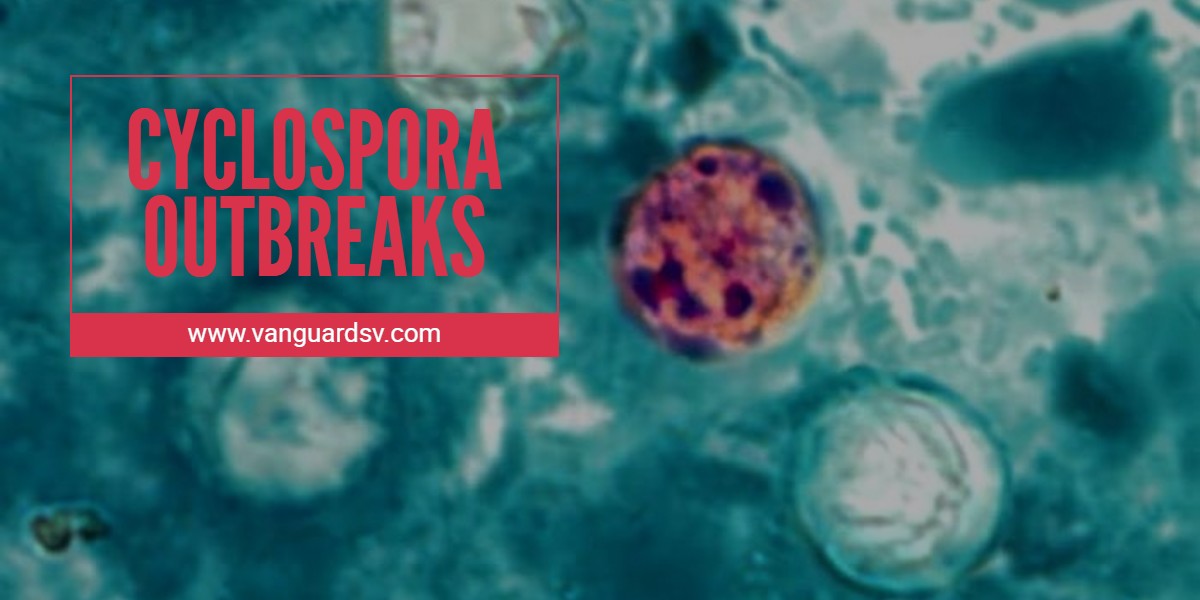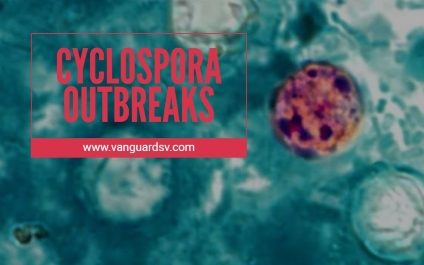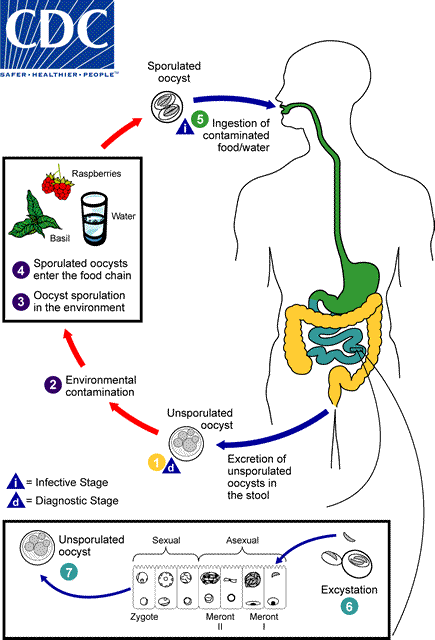Green cleaning services and healthy hand-hygiene practices are the ideal combinations to combat the rise in Cyclospora outbreaks from imported produce in the U.S.

Green Cleaning Services to Combat Cyclospora Outbreaks
According to the U.S. Centers for Disease Control and Prevention (CDC);
Cyclospora cayetanensis is a parasite composed of one cell, too small to be seen without a microscope.
This parasite causes an intestinal infection called cyclosporiasis.
Cyclospora is spread by people ingesting something - such as food or water - that was contaminated with feces (stool).
Cyclospora needs time (days to weeks) after being passed in a bowel movement to become infectious for another person.
Therefore, it is unlikely that Cyclospora is passed directly from one person to another.
Cyclospora FAQ
Q: How is Cyclospora spread?
A: Cyclospora is an intestinal parasite, common to subtropical regions, that is transmitted by ingesting something--typically food or water--that contains, or is covered by, infected human feces.
Since Cyclospora is only passed through the consumption of infected stool, it is highly unlikely that it will pass from one person directly to another.
The transfer of the parasite is most commonly associated with the consumption of imported fresh produce, such as:
- Raspberries.
- Basil.
- Snow Peas, and;
- Mesclun Lettuce.
According to the CDC;
[N]o commercially frozen or canned produce has been implicated.
Q: What are the Risk Factors?
A: The likelihood of becoming infected with Cyclospora is relatively small, as it requires several conditions to be met.
People become infected with Cyclospora by ingesting sporulated oocysts, which are the infective form of the parasite.
This most commonly occurs when food or water contaminated with feces is consumed.
An infected person sheds unsporulated (immature, non-infective) Cyclospora oocysts in the feces.
The oocysts are thought to require days to weeks in favorable environmental conditions to sporulate (become infective).
Therefore, direct person-to-person transmission is unlikely, as is transmission via ingestion of newly contaminated food or water.
Q: What are the Symptoms?
A: Symptoms for Cyclospora begin to appear between two days and more than two weeks (seven days on average) after ingestion, and include side-effects common to intestinal illness.
- Watery diarrhea
- Loss of appetite
- Weight loss
- Cramping
- Bloating
- Increased gas
- Nausea
- Fatigue
- Vomiting
- Low-grade fever
Several antibiotics have shown varying levels of success at combating Cyclospora, but nothing that could be considered high or consistently useful.
Fortunately, most adults with a healthy immune system will recover naturally, though the process could go on for well over a month.
Over the counter, anti-diarrheal medication has proven effective in combatting the worst of the side-effects.
However, it is highly advisable to seek the advice of a medical professional before taking any medicine.
Q: What are the Prevention & Control Measures for Cyclospora?
A: As Cyclospora is a parasite that must be passed through feces, there are several common sense and cost-effective strategies to eliminate, or significantly reduce, outbreak and infection numbers.
All safe food handling practices begin with proper hand hygiene.
- Ensure all food handlers scrub their hands with regular soap, preferably liquid-foaming from a sealed dispenser, for 45 seconds with clean water after using the restroom, before eating, and after returning from any breaks to resume duties.
The two primary areas of focus for sanitation and disinfection are the bathrooms and food prep/handling areas.
- All restrooms should be well supplied with clean, liquid soap, preferably foaming and sealed in a replaceable packet, as well as quality paper towels.
- The restroom should be thoroughly disinfected, at least daily, from top to bottom with a certified green disinfectant.
- Ideally, restrooms should also include UV lighting to sanitize surfaces while the room is unoccupied to improve sanitation.
- All surfaces that food will touch should be thoroughly disinfected on a regular basis as well.
Consumers and travelers to subtropical environments should take special care to ensure that the produce they consume has been thoroughly washed with vegetable grade soap, and dried with a clean towel to prevent, or significantly lower the chances of ingestion and potential infection.
References & Resources
Takeaway
Cyclospora is a preventable parasitic infection that can cause severe illness, sometimes resulting in hospitalization.
The parasite is typically passed on to humans and animals through the consumption of imported fresh produce.
The safest, most cost-effective method for eliminating Cyclospora outbreaks is to adhere to documented best-practices for green cleaning disinfection and the enforcement of hand sanitation by food handlers throughout the entire life-cycle of the product.
If you would like to learn more about the advantages of green cleaning services to protect your workers and customers from Cyclospora and the outbreak of other infectious microbes, contact us today for a free quote!
In Bakersfield CA, call (661) 437-3253
In Fresno CA, call (559) 206-1059
In Valencia CA, or Santa Clarita CA, call (661) 437-3253



You must be logged in to post a comment.